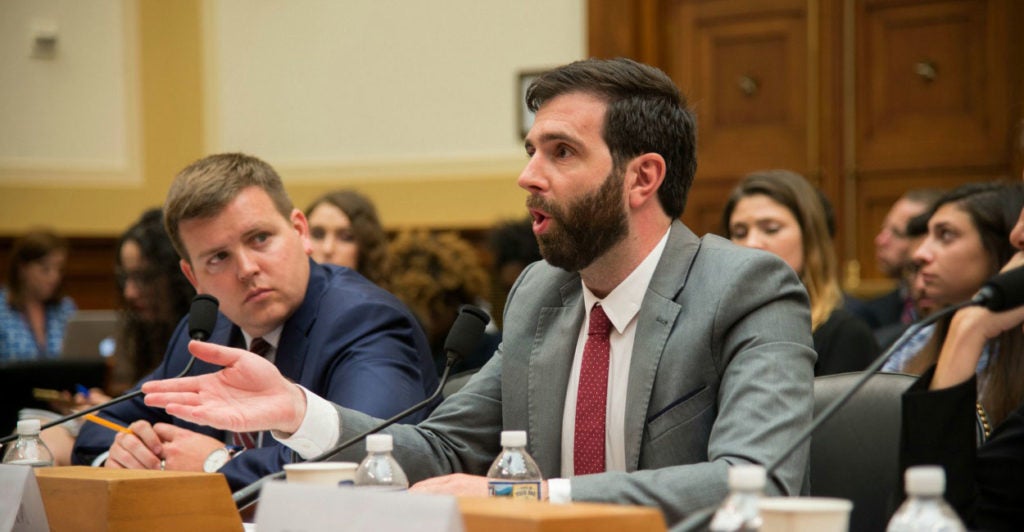Europeans who are joining ISIS make up one big reason the rise of terrorism isn’t going to be thwarted anytime soon, an expert on the subject told a congressional panel.
“At least 5,000 to 6,000 Europeans who have fought alongside ISIS and other Islamist groups in Syria and Iraq are now returning to their home countries,” Heritage Foundation scholar Robin Simcox testified Tuesday.
Simcox, the Margaret Thatcher fellow at the conservative think tank, specializes in terrorism and national security. He said the terrorist threat is becoming more widespread across Europe, pointing to Germany as an example.
“There was an eightfold increase in plots between 2015 and 2016, largely due to a surge in plots involving refugees,” Simcox said. “In fact, Germany faced more plots last year than it did in the entire 2000-2015 period.”
The House Foreign Affairs subcommittee on terrorism, nonproliferation, and trade held the hearing, titled “Allies Under Attack: The Terrorist Threat to Europe.”
Recent terror attacks in Europe include June 3 on London Bridge; June 19 in North London; May 22 outside a stadium in Manchester, England; April 20 along the Champs-Élysées in Paris; and April 7 in Stockholm.
The British government alone is monitoring 23,000 individuals who may pose a terrorist threat, Simcox said.
Terrorist activity has shot up in the past three years, he said:
Between January 2014 and the end of May 2017, there had been 15 separate countries targeted; most commonly, Belgium, France, Germany, and the U.K. This year, there have been multiple attacks on traditional Islamist targets in the U.K. and France.
Despite the growing threat, Simcox said, it isn’t possible to successfully find most of those who are making terror plots.
“While there are certainly trends, it is impossible to build a catch-all profile of who will carry out these attacks,” Simcox said, adding: “It is not just young men, for example. Khalid Masood, the Westminster Bridge attacker, was 52. My research has even shown an uptick in plotting by teenagers and girls.”
Also changing is terrorists’ weapons of choice, he said:
Since November 2015, Belgium, France, Germany, and the U.K. have all seen operatives acquiring the expertise and materials to assemble suicide bombs without having their plans thwarted. There has also been a multitude of plots involving firearms, knives, or some other form of edged weapon, such as a machete or an ax, and, of course, the use of vehicles.
The hard truth, Simcox said, is that “the grave danger that terrorism poses to Europe is only likely to increase.”
“The U.S. must work with Europe to defeat this threat,” he told the lawmakers.
Before joining The Heritage Foundation in 2016, Simcox was a research fellow at the Henry Jackson Society, a foreign policy think tank in London.
While there, he wrote about terrorism, including co-authoring a pamphlet titled “Al-Qaeda in the United States,” which profiled every known court conviction in America linked to al-Qaeda.
